
THE VOICE OF INTERNATIONAL LITHUANIA
|
VilNews has its own Google archive! Type a word in the above search box to find any article.
You can also follow us on Facebook. We have two different pages. Click to open and join.
|
Front page
Juozas Ambrazevicius – Brazaitis is no hero
- Posted by - (0) Comment
 Darius Udrys |
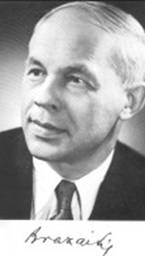 |
Opinion: Darius Udrys
If there’s one thing civilized people should all be able to agree upon, one would think that it would be not to make heroes out of Nazi collaborators. Yet here in Lithuania we are about to witness just such a moral travesty.
Somebody apparently decided it would be a good idea to move the remains of Juozas Ambrazevicius-Brazaitis, acting prime minister of Lithuania during the first months of the Nazi occupation, from the United States to Lithuania. Buried previously in Putnam, Connecticut, he has been exhumed and will be reinterred in Kaunas this Sunday with as much fanfare as can be mustered among the clueless and the callous.
Ambrazevicius-Brazaitis is no hero.
- Bookmark :
- Digg
- del.icio.us
- Stumbleupon
- Redit it
- Posted by - (0) Comment
Member of Parliament Petras Gražulis:
Let’s chase ambassadors
and gays out of Lithuania

Juliaus Kalinsko
„15 minučių“ photo / Petras Gražulis
By: Eglė Digrytė / ![]() / 15min.lt
/ 15min.lt
Lithuanian MP Petras Gražulis, who has earned notoriety for his homophobic statements and a police record for his behavior during a Gay Pride event in Vilnius in 2010, has made another stunt right in the Parliament building.
On Wednesday, Gražulis turned up at a press conference – attended by LGBT rights advocates and foreign ambassadors – and burst out with comments on necrophiliacs and zoophiles, insults at foreign ambassadors, and declarations that all gay people should leave the country.
The press conference was held on the eve of the International Day Against Homophobia and Transphobia (IDAHO). It was organized by Marija Aušrinė Pavilionienė, social democratic MP, and Lithuanian Gay League (LGL), LGBT-rights NGO. It was attended, among others, by Dutch ambassador Kornel Willem Spaans, US Embassy Policy and Economics Department head John Finkbeiner, Amnesty International representative Helle Jacobsen.
- Bookmark :
- Digg
- del.icio.us
- Stumbleupon
- Redit it
Nazi – not Nazi?
- Posted by - (0) Comment
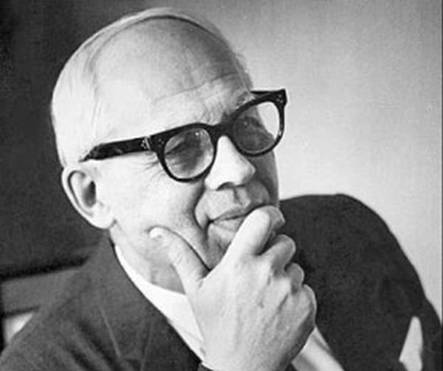
Juozas Ambrazevičius or Juozas Brazaitis
The controversial case of Juozas Ambrazevius Brazaitis' (1903-1974) remains being returned to Lithuania for re-burial this week
Juozas Ambrazevičius or Juozas Brazaitis was a Lithuanian literary historian, better known for his political career and nationalistic views. He was acting Prime Minister of the Provisional Government of Lithuania, the so-called Nazi puppet government, from 23 June 1941 to 5 August 1941.
He later joined an anti-Nazi movement, until he escaped from Lithuania by the end of WWII.
A document by the US Committee on the Judiciary, House of Representatives, from January 1975, states that Brazaitis was removed from the list of Alleged Nazi War Criminals and that further investigations had been stopped. But Efraim Zuroff, leader of the Simon Wiesenthal Centre in Israel, says: "At the time the Americans didn't have the data that clearly point to his connection to the Nazis and to anti-Jewish violence." Here is a copy of the 1975 document...

- Bookmark :
- Digg
- del.icio.us
- Stumbleupon
- Redit it
Should there be gay parades in Lithuania?
- Posted by - (0) Comment

In 2010 the Lithuanian Attorney General's Office insisted security was the only reason it had asked the court to annul a license for what would have been Lithuania's first gay pride march in Vilnius. "Whose fault would it be if anyone gets hurt? It might look like we are homophobic, but I am not sure if we'd look better with pictures of violence on TV," Attorney General Raimundas Petrauskas said. He believed radical and violent groups are organizing protests and provocations against the participants of the gay march.
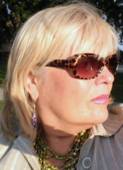 Irene Simanavicius, Toronto, Canada |
Today homosexuality is discussed everywhere we go. It is shown through the television, movies, and books. Being a Homosexual in today’s society comes with many hardships. Although it has been more frequently discussed and talked about, there is always discrimination. Types of discrimination towards someone’s sexual preference are name-calling, hate crimes, firing from a job, violence, murders, and vandalism of property. Unfortunately, when you are not part of the norm you are picked on and discriminated against. Homosexuality is becoming a more common and open thing but it still has people disagreeing with its moral values. Homosexuality has many issues that It has to face in the future. As a society today, we will have an open mind to homosexuality but there will always be discrimination by someone, somewhere. |
 Viktorija Ruškulienė, New Jersey, USA |
“Lithuania has a great distance to walk towards democracy. Cases presented to court cannot be used as a statistical data, as the Lithuanian judicial system is corrupt and not working in many cases, people do not resolve their problems by law, as it’s done in other European countries. For example, police will not assist street or domestic violence incident until a murder or serious injuries take place. The rape victim has to have two witnesses of the “rape in action”, otherwise the case will be dismissed (my friend was in this unfortunate situation: raped by a policeman and had no witnesses).She was told that case will never reach the court.” |
- Bookmark :
- Digg
- del.icio.us
- Stumbleupon
- Redit it
Global Baltic ‘family reunion’ in Chicago
- Posted by - (0) Comment

U.S. Senator Dick Durbin, who traces his roots to Lithuania, spoke on the
topic of “the unbreakable U.S.-Baltic partnership,” and referred to
the conference as “a family reunion.”
Photo: Jurgis Anysas.
By Ellen Cassedy
“The Global Baltics: The Next Twenty Years” was the subject of the 23rd biennial conference of the Association for the Advancement of Baltic Studies (AABS). The conference took place April 26-28 at the University of Illinois at Chicago.
“We are truly the global Baltics,” said Robert Vitas, chair of the Chicago-based Lithuanian Research and Studies Center, in an opening address. “Wars, migrations, and deportations have wrenched our people beyond our national boundaries. Lithuania is home in our hearts, but the countries of the diaspora are also home.”
- Bookmark :
- Digg
- del.icio.us
- Stumbleupon
- Redit it
- Posted by - (0) Comment

Rimgaudas "Rim"
Vidziunas
“The LT government didn’t call to say they love me.”
This was the headline of an article we brought earlier this week, about Rimgaudas "Rim" Vidziunas in Arizona, USA. Rim and many other American-Lithuanians have been doing much to keep the memory of Lithuania alive. When I asked if he ever heard from the Lithuanian authorities, he told me that no one from the homeland had ever told him or other refugee children that they are loved by the ancestral homeland, that they are welcome back now that the communism yoke is lifted off.
It seems, unfortunately, that today’s Lithuanian leadership has not done much to restore contact with this most valuable of all resources, namely its own people around the globe – the diasporas.
And even worse is that when these 'refugee children' are trying to make contact with Lithuanian leaders themselves, they will very often not even receive replies.
Sadness pit dug even deeper.
Here a couple of emails we received some time ago, from two American-Lithuanians born in their home country before the war:
____________________________________________________________________
Sending e-mail to LT is
like sending it to the black
hole of the universe
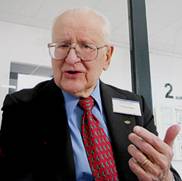
Vytautas Sliupas
Dear Aage:
Lithuania's business people and government officials are yet to learn the necessity of good communications. Without a two way communication there is no possibility for further contacts. One of the most frustrating experiences I had was in e-mail (before that it was in regular "snail mail") communications. I would write and write but receive no reply (with only a few exceptions).
When I was working, our management had a rule - "answer all letters received in not more than three days. If there is no answer to be given, than at least acknowledge the receipt".
One of my American colleagues, who was sincerely trying to help Lithuania, said "Sending e-mail to Lithuania is like sending it to the black hole of the universe. Everything goes one way and nothing comes back".
No wander he is now disenchanted and helping others.
Vytautas Sliupas, P.E.
www.aukfoundation.org
Burlingame, California
____________________________________________________________________
"Dummheit und Stolz
wachsen auf einem Holz"
(Pride and ignorance are akin)

Stan Backaitis
Dear Aage,
Several months ago I had arranged a visit between the minister of energy and a CEO of an important nuclear reactor manufacturer. The meeting was supposed to be for the benefit of the minister on information of what is forthcoming in the future, particularly in small reactors and the possibility of establishing a European affiliate of the company in Lithuania.
The minister graciously extended an invitation to the CEO, but the minister's secretariat refused to extend even the slightest courtesy to this visit, such as picking up the visitor from the airport and transporting him to the meeting, setting up a meeting agenda, or even providing to the visitor's office the address of the ministry. They claimed that this was just another sales visit, and the visitor should take care of everything on his own. As a result the CEO canceled the meeting and eventually went to London. The European affiliate was established in the UK. Thus through such arrogance another opportunity was lost.
There is a lot truth in the German proverb "Dummheit und Stolz wachsen auf einem Holz".
Best regards,
Stan Backaitis
Washington, USA
- Bookmark :
- Digg
- del.icio.us
- Stumbleupon
- Redit it
- Posted by - (0) Comment
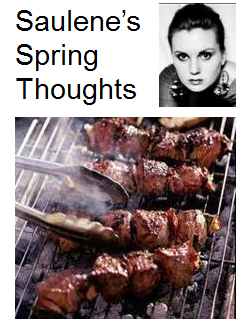
Craving for a barbeque
on a Lithuanian lakeside
Text: Saulene Valskyte
Dark gray days and cold nights are finally over and spring/summer has made its way back to Lithuania. Just a few weeks ago you still could've found some remains of snow, but now the sun made her way back and it looks that everybody became happier over night.
After a long rainy autumn and an even longer cold dark winter, people were praying for spring to come back and when it did it looks like everyone is trying to catch up on all summer activities on the very first weekend.
Lakes take the biggest role in Lithuanian summer. Over winter everyone is just craving for barbeque on a lakeside and we do make sure that the very first summery sunshine will be welcomed somewhere in nature enjoying good weather and šašlykai*. Even when the weather is still quite chilly and only dropping clues about upcoming spring fills streets with bicycles and relaxed pedestrians, it looks like for months and months people were waiting for a chance to get out of their homes and finally they get the possibility to do that. In a matter of days parks fill up with lovely couples, young families and youth playing ball, cards or just chilling on barely sprouted grass.
- Bookmark :
- Digg
- del.icio.us
- Stumbleupon
- Redit it
- Posted by - (0) Comment
No LT leaders called
to say they love me
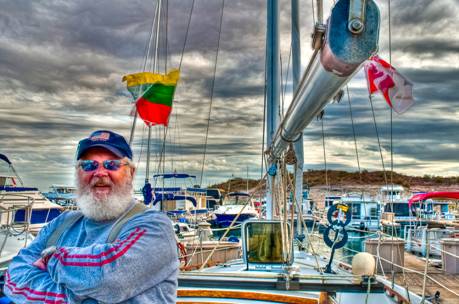
Rimgaudas P. Vidziunas aka "Rim", at Scorpion Bay Marina,
Lake Pleasant, Arizona.
Rimgaudas "Rim" Vidziunas
Owner of Photography by Rimgaudas, Mesa, Arizona
Creator of "Images and Imagination"
This is Rimgaudas' brief autobiography and photo album, from his birth in a German camp for displaced Lithuanians in 1947, fleeing westward with his family until he ended up in Arizona, USA. His story is similar to those of many other Lithuanian-American children who were born while their parents fled Stalin's Red Army. Rim has been back in his parents' homeland and do much to keep the memory alive. Still it is with a certain soreness he answers NO when I ask if he ever heard from the Lithuanian authorities. Not a single letter, no phone call from the home country's leaders. No one from home has told Rim and many other refugee children that they are loved by the ancestral homeland, that they are welcome back now that the communism yoke is lifted off. It seems, unfortunately, that today’s Lithuanian leadership has not done much to restore contact with this most valuable of all resources, namely its own people around the globe.
Here is his story...
My father Juozas Vidziunas escaped Pramedziava, Lithuania during the Soviet invasion of 1941. He went to Germany and there he studied Medicine at the University of Heidelberg. Juozas met Salomeja while he was a student. My mother, Salomeja worked as a hostess at a US Army USO club after the war in Germany. They were given a visa to go to the United States in 1949.
Parents did not talk about their escape from Lithuania to Germany.
I was born in 1947, and when I was two were allowed to come to the U.S. We came here with the ship USS General Sturgis, a US Army troop carrier. After dropping off troops in Germany it would carry refugees back to the United States. We left Bremen Germany, arriving Port of New Orleans 13 March 1949.
The Army Red Cross gave us each $5.00 US dollars and boarded us on a train bound to Los Angeles, California. We were met by my father's brother Juonas Vidziunas and cousin Daiva. We lived with them till 1952 and departed for Chicago, Illinois. Several years later we moved to a small farming community Lexington, Illinois about 120 miles southwest of Chicago. I graduated high school from Lexington, was Senior Class President and graduated University of Miami, Florida, BA History, January 1970.
I returned to the Midwestern United States upon graduation. My love of photography began. On a trip to Arizona in 1974, I fell in love with the desert and moved to Arizona in 1978. I continue my art of photography to this day.
- Bookmark :
- Digg
- del.icio.us
- Stumbleupon
- Redit it
- Posted by - (0) Comment
Come celebrate with me
Mother’s Day in Lithuania

Impression from my today’s visit to the Jurbarkas Cemetery.
Text/photos: Aage Myhre
aage.myhre@Vilnews.com
I was up very early today, to drive the 200 kilometers (125 mi.) to Jurbarkas town, where mothers and grandmothers of my wife's family are buried.
A sunny day, a fantastic backdrop for the celebration and commemoration to the honour of these proud Lithuanian women.
You are cordially invited to join the tour and see the pictures I took in this incredibly beautiful cemetery ...
- Bookmark :
- Digg
- del.icio.us
- Stumbleupon
- Redit it
- Posted by - (0) Comment
How Chicago became
Lithuania’s second capital
PLUS EARLY 20th CENTURY LITHUANIAN-AMERICAN
SOCIETY TOKENS OF CHICAGO, ILLINOIS
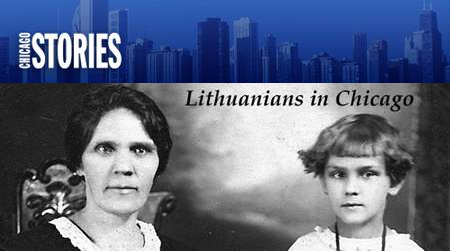
Banner from the website http://www.wttw.com/main.taf?p=1,7,1,1,26
By Frank Passic, Albion, Michigan.
When Lithuania came under Russian control in 1795, the Russians did all they could to “Russify” the Lithuanians, but they were continually met with stiff opposition. During the last half of the 19th Century, oppression increased as parochial schools were closed and Lithuanian printed matter was forbidden. Repressive measures were forced upon the people by the Czar, adding to the misery of the Lithuanian nation which already suffered from famine and mass unemployment.
As a result, thousands of Lithuanians fled their homeland in the late 19th and early 20th centuries prior to World War I. Emigration to America eventually totaled 635,000 individuals, approximately 20 percent of the population of Lithuania! Lithuanians arrived at Ellis Island impoverished, penniless, and unable to speak the English language but full of hope – the hope of freedom, a new life and unlimited opportunity.
Helping the Lithuanian immigrant was the Brooklyn Chapter of the Lithuanian Alliance of America, which gave aid to those at Ellis Island. The Brooklyn Lithuanian-American Citizens Club held a special conference in May of 1911 to plan a strategy for helping those who were scheduled for deportation back to Lithuania. The No. 4 issue of Tevyne (1896) stated, “At present, masses of Lithuanian emigrants are arriving in New York. Every ship from Hamburg brings tens and hundreds of Lithuanians. Many are sent back and the Alliance’s Brooklyn Chapter is working its hardest for the good of those poor peoples…”
In general, the immigrants stayed in New York only briefly, then moved westward to Pennsylvania, where they found employment building railroads and working the coal mines. Numerous Lithuanian organizations, newspapers, and societies were organized in Pennsylvania. These served as the prelude to those that were to be established later in Chicago as Lithuanian immigrants moved westward. Many Chicago societies were actually branches of those that were first established in Pennsylvania.
The first group of Lithuanians came to Chicago in 1870, when eighteen men arrived with a railroad crew. Because of its central location with industry and development, Chicago became the goal of the thousands of impoverished Lithuanian immigrants seeking a new life. Groups of Lithuanians came in 1880 and 1885, with the first colony being established on the North side of the city. After that, the influx of Lithuanians to Chicago grew at an enormous rate. It is estimated that between 1880 and 1914 more than 47,000 Lithuanians settled in the city, congregating in the Bridgeport and Town of Lake districts. By 1923, the Lithuanian population had grown to over 90,000, confirming the fact that Chicago contained the largest Lithuanian population of any city in the world, even more than Kaunas, Lithuania.
According to one story, the Bridgeport section, where many Lithuanians settled, was supposedly named after a Lithuanian immigrant from Tilsit (East Prussia/ Lithuanian Minor) named Ansas Portas. Portas owned land on the south side of the Chicago River at a bridge crossing, and people referred to the area as the “bridge to Portas,” which was later changed to Bridgeport. The Bridgeport section served as the nucleus of the Lithuanian community from the early years of immigration to Chicago through the era of World War I.
Due to the difficulty they had in obtaining jobs, Lithuanian immigrants began to settle around the stockyards where work was available in the slaughterhouses and steel mills. By World War I, approximately 25 percent of the ethnic work force in the industries was Lithuanian, and it is estimated that a total of 100,000 Lithuanians worked in the stockyards in Chicago during their existence. The grim and horrible conditions Lithuanian workers faced there were the theme of the classic novel, The Jungle (1906) by Upton Sinclair.
The Lithuanian contribution to the city of Chicago is significant in several ways. First, it provided the city with an added labor base upon which the city’s industries grew and prospered. Second it accelerated the building of ethnic neighborhoods, adding to the distinctive variety found in the city’s cultural life. Third, it spurred the formation of new businesses and more affluence.
- Bookmark :
- Digg
- del.icio.us
- Stumbleupon
- Redit it
- Posted by - (0) Comment
Amrita Nadi: When researching for the Wisdom of Laughter Album (soon coming), I had delight of "meeting" Teresa Hsu, 112 years old, who inspires with her simple messages of joy. "if you love everybody with all the love in your heart, then you’ll be happy, ha, ha, ha,” Below is a wonderful report on her meeting with an audience in 2010, from
the blog of Tsem Tulku Rinpoche
The power of laughter
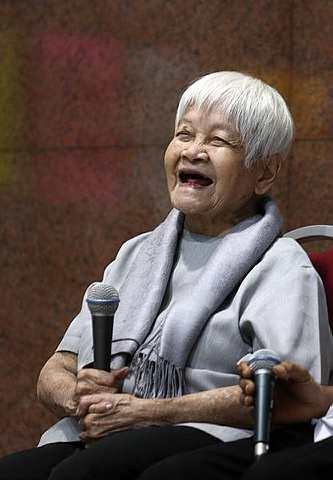
Teresa Hsu
By K. Kaewuni Dewi
CENTENARIAN Teresa Hsu kept some 200 people in stitches during her talk on ‘Love All Serve All’ at the Malaysian Buddhist Association hall in Penang last Friday.
For the bubbly Chinese-born Singaporean, who is affectionately known as Singapore’s Mother Teresa, laughter is definitely the best medicine.
Born in 1898, the 112-year-old social worker extraordinaire keeps young and active by happily doing charity work.
Kicking off the question and answer session Hsu said she was born “very, very poor” and the toughest part of her life was when she had to pick grass to eat as she was “very, very hungry”.
“It was at that moment I thought to myself that no one should ever go through what I went through,” she said.
When asked the secret to her longevity and good health, Hsu responded, “Ha, ha, ha! Make sure your heart is always happy”
She also said eating one raw egg every day for breakfast could be another reason for her good health.
“Once someone told me that raw egg is poisonous to which I replied ‘never mind, I thrive on poison’,” she said....
- Bookmark :
- Digg
- del.icio.us
- Stumbleupon
- Redit it
- Posted by - (0) Comment
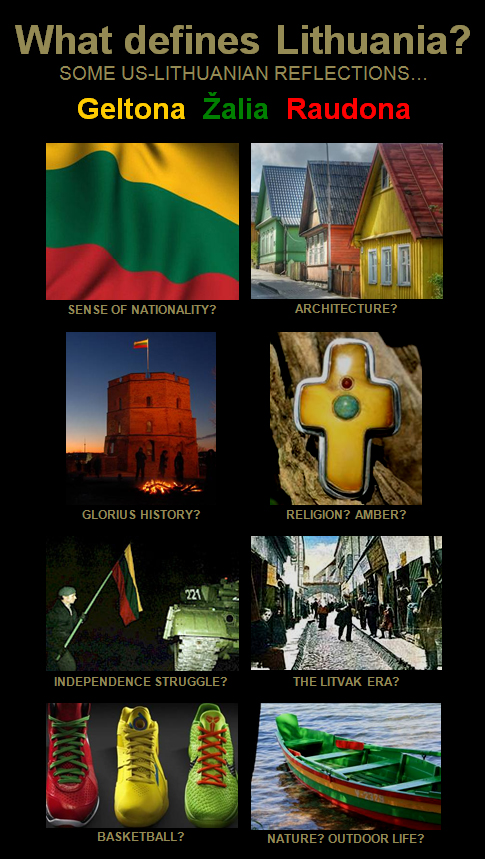
By Jennifer Virškus
A nation can be defined by several different characteristics; geographical location, language, a common history, cultural body, or race. The Lithuanian nation is defined by all of these. Lithuania has a language which is unique in the world and a culture that runs deep. It shares more than two centuries of its history with Poland, and few other nations have survived occupation by so many different groups. There are several types of nationalism; primordial, civic, organic, and liberal. Because of the lack of opportunity in Lithuania, young Lithuanians have recently tried to convince themselves that they want to “forget” their Lithuanian culture and move on to a new life in the West, but it is not possible. Lithuanians will always be Lithuanians whether they are in Lietuva or not. This is evident in the Lithuanian-American community, though they are clearly Americans, their Lithuanian identity stays with them. This is because Lithuanian nationalism is both geographic and organic, an entity to which all Lithuanians belong, as parts of a whole and independently of their will, choice or consciousness.
| Jennifer Virškus Jennifer Virškus is a Lithuanian-American freelance writer, photographer, graphic designer, skier, sailor, traveler, and current MFA Writing student at California College of the Arts. While living in Vilnius, she founded the Kalnu Ereliai Ski Team. You can read more of her writing about skiing, sailing, and Lithuania at her blog, One Way Ticket. |
 |
- Bookmark :
- Digg
- del.icio.us
- Stumbleupon
- Redit it
- Posted by - (0) Comment
Rūta Šepetys and Ellen Cassedy
Probably our relatives brushed shoulders in the marketplace

Rūta Šepetys and Ellen Cassedy interviewed by Jennifer Virškus
Two new books making a splash in the literary world—Between Shades of Grey by Rūta Šepetys and We Are Here: Memories of the Lithuanian Holocaust by Ellen Cassedy—take place in WWII Lithuania. Though the two women's stories begin in much the same place—Sepetys's grandfather is from a village near Biržai, while Cassedy's great-grandfather hails from Rokiškis only 60km away—the books, and their stories, couldn't be more different. We Are Here is a first person memoir about Cassedy's journey to discover her Litvak heritage while studying Yiddish at Vilnius University. Between Shades of Grey is a young adult fiction novel about a 15-year-old girl who is deported to Siberia along with her mother and younger brother.
Individually, the books have met with incredible success. Between Shades of Grey, which came out in paperback this month in the US, has been translated into twenty-five languages and sold in thirty countries. Only in bookstores for a little over a month, We Are Here is racking up rave reviews at home and abroad. When speaking of the book, which will be released in Lithuania in May, former president Valdas Adamkus said, “This eloquent book can help us to reach out, open our hearts, and rediscover one another in a spirit of mutual understanding.”
Indeed, the need for understanding is a theme in both books, and together, they provide a more complete portrait of a time in history when Lithuania's identity was at its most complex—not only for their readers, but for the authors, too. “I went to Lithuania, hoping to decide who was right and who was wrong; to put people in a column, who was a victim, who was a killer. And then those lines began to blur,” says Cassedy.
Šepetys went one step further, “The intersection that I've experienced [between the ethnic Lithuanian fear of the Soviets and the Litvak fear of the Nazis] is one of regret … People that I've spoken to say that some of their greatest regrets weren't the things that they forgot to pack with them; they were human interactions with people. Something that was said or done, a suspicion or paranoia; but they also explained that those are the casualties of war.”
- Bookmark :
- Digg
- del.icio.us
- Stumbleupon
- Redit it
- Posted by - (1) Comment
“Why do you love
Jews so much?”
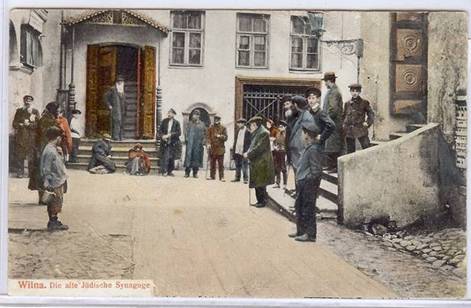
Vilnius, the old Jewish Synagogue.
By Aage Myhre, Editor-in-Chief
aage.myhre@VilNews.com
I have repeatedly been asked, by Lithuanians and others why VilNews, and I as a Norwegian without a single drop of Jewish blood, love Jews so much? Recently I met a Lithuanian-American, well educated and well read, who yet bombastically trumpeted. "You lick the asses of the Jews, Aage."
During my meetings with Jews in South Africa, where 90% of the Jewish population of almost 100 000 are of Lithuanian descent, I have also been asked why I have such great interest in Litvaks.
My answer to all these, has been that I do not love Jews more than other peoples.
But I also tend to add that I am always impressed by people who achieve more than the common herd. Intelligence and wisdom are to me among the most important qualities a person can have, and I have no problem admitting that these are qualities I've seen a lot of among the Jews I have known through life.
As to the Litvaks, they were subjected to an almost total extinction here in Lithuania during the Holocaust. It was an assault and a genocide of an unimaginable scale that we must never forget, and which memory must find its fair balance in the mental as well as in the practical.
- Bookmark :
- Digg
- del.icio.us
- Stumbleupon
- Redit it
- Posted by - (0) Comment
US-Lithuanian Jews
play many key roles

There are very strong communities of Jews of Lithuanian descent (Litvaks) around the world, especially in Israel, the United States, South Africa, Zimbabwe, Brazil and Australia.
In all these countries they hold top positions in politics, economy, science, culture and society in general.
Their names are frequently found among the Nobel laureates and in many other honorable contexts.
They often lead in matters and innovations that affect and influence us all, wherever in the world we live.
So also in the U.S., where they have been prominent leaders in economics, science and culture since the 1800s. It is, for example, said that Hollywood would not have existed had it not been for the Litvaks.
Litvaks are Jews with roots in the Grand Duchy of Lithuania: (present-day Lithuania, Belarus, Ukraine, and the northeastern Suwałki region of Poland).
Lithuania was historically home to a large and influential Jewish community that was almost entirely eliminated during the Holocaust. Before World War II there were over 110 synagogues and 10 yeshivas in Vilnius alone. Before World War II, the Lithuanian Jewish population was some 160,000, about 7% of the total population. Vilnius (then Wilno in the Second Polish Republic) had a Jewish community of nearly 100,000, about 45% of the city's total.
The reason for the Litvaks’ huge success is likely to be found in the fact that Vilnius through many centuries was considered the Jewish intellectual and cultural capital, with a huge number of teachers and scholars who taught and ruled this tiny community with wisdom and deep knowledge about a large number of disciplines.
Tolerance and interpersonal respect was also a hallmark of this community and for the whole of Lithuania through hundreds of years.
It was this that made Napoleon to name Vilnius as "Jerusalem of the North" when he came here on his way to Moscow in 1812. It is said that Napoleon himself became very surprised on what met him in Vilnius, a city so far away from the European mainstreams and still with a lively Mediterranean mood and life.
Vilnius was the first and only "Jewish city" Napoleon would ever see. He was no doubt aware of the Crusades, Inquisitions, pogroms and laws designed to discourage Judaic life. But here he had found a city, right before his eyes, that was an amazing exception to the rule.
And true enough, the history of the Litvaks is unusual and surprising. It was a history of mostly peaceful coexistence with other peoples and cultures that lasted for more than six centuries. It was a history that spawned an incredible number of eminent Jews, not the least of whom was Elijah ben Solomon Zalman (1720-1797), also known as “The Gaon of Vilnius”.
The "Golden Age of Jewry" in Lithuania started with Grand Duke Gediminas (1275-1341), the empire builder who took a liking to foreigners and Jews whose skills and education were badly needed in medieval Lithuania. In the early 1300's he attracted them to his realm with numerous perks, including guarantees of religious freedom and tax exemptions.
The Jews of Europe responded in droves, and Vilnius became the heralded centre of Jewish culture and learning. There would be synagogues, schools, theatres, publishing houses and the Yiddish Institute of Higher Learning. At a time when others in Europe were effectively illiterate, all the Jews in Vilnius could read and write.
This was so unusual that it provoked the invention of a brand-new word, "Vilner," meaning "an educated man with knowledge." For almost 700 years, the Litvaks became an inseparable part of Lithuanian society, having enriched the country’s economy, culture, science, and education.
To read more, go to our SECTION 12
- Bookmark :
- Digg
- del.icio.us
- Stumbleupon
- Redit it
- Posted by - (0) Comment
Ona Šimaitė:
Righteous – and Human
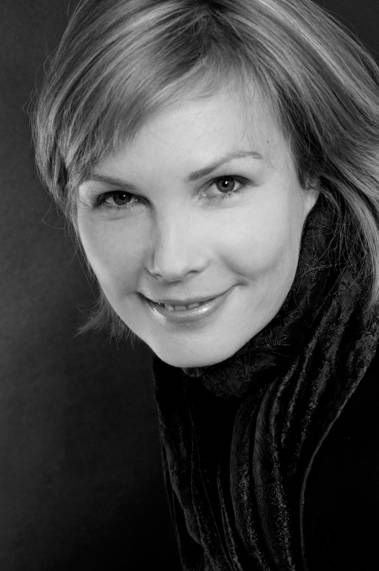
Julija Šukys,
Author of Epistolophilia: Writing the Life of Ona Šimaitė
Julija Šukys interviewed by Ellen Cassedy
In her new book, Epistolophilia, Julija Šukys follows the letters and journals—the “life-writing”—of Ona Šimaitė (1894–1970), a Lithuanian librarian who again and again slipped into the Jewish ghetto of German-occupied Vilnius carrying food, clothes, medicine, money, and counterfeit documents. Often she left with letters to deliver, manuscripts to hide, and even sedated children swathed in sacks. In 1944 she was captured by the Gestapo, tortured for twelve days, and deported to Dachau.
Šukys beckons back to life this quiet and worldly heroine. Ona Šimaitė is a giant of Holocaust history – one of the “Righteous among the Nations” honored at the Yad Vashem memorial in Israel – and yet little known.
Julija Šukys lives in Montreal, Canada. In addition to Epistolophilia, she is also the author of Silence Is Death; The Life and Work of Tahar Djaout. Visit her website at http://julijasukys.com.
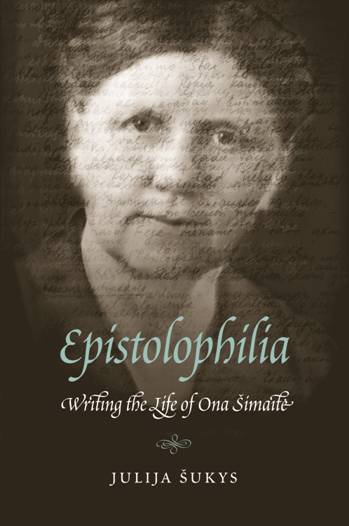
- Bookmark :
- Digg
- del.icio.us
- Stumbleupon
- Redit it
VilNews e-magazine is published in Vilnius, Lithuania. Editor-in-Chief: Mr. Aage Myhre. Inquires to the editors: editor@VilNews.com.
Code of Ethics: See Section 2 – about VilNews. VilNews is not responsible for content on external links/web pages.
HOW TO ADVERTISE IN VILNEWS.
All content is copyrighted © 2011. UAB ‘VilNews’.

 Click on the buttons to open and read each of VilNews' 18 sub-sections
Click on the buttons to open and read each of VilNews' 18 sub-sections 















.jpg)



